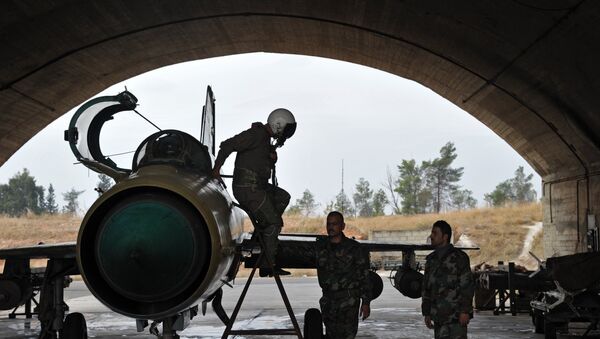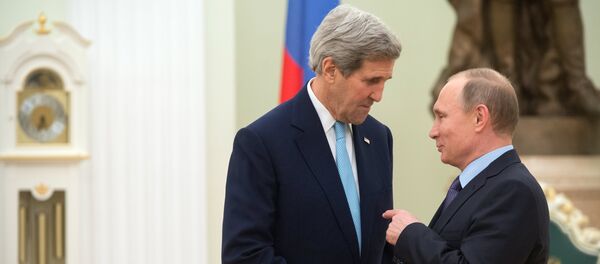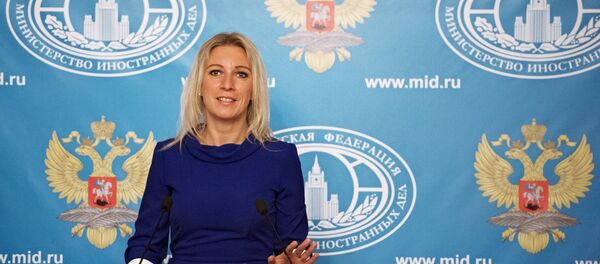A part of the US foreign policy circle pushing for global "regime change" to promote US interests, most popularly known as the neo-conservatives, appears to believe believe that US State Secretary John Kerry went to Moscow on Tuesday to become brainwashed by Russian President Vladimir Putin.
The arguments made appear to be mainly a push for a US ground presence in Syria, and an "isolation" of Russia. Kerry's Moscow visit, made primarily to negotiate over Syria, is a form of appeasement, according to McCain Institute senior director David Kramer.
"Kerry’s second trip to Russia this year would further undermine President Obama’s boast in his January 2015 State of the Union speech that the United States has led the isolation of Russia for its invasion of Ukraine," Kramer wrote.
Lobbying executive Ed Rogers went a step further, using his blog in the Washington Post to suggest that Putin has been preparing to use nuclear weapons, all because the US is reluctant to invade Syria.
In Newsweek, former Swedish diplomatic adviser Aaron Korewa called the new arrangement a repeat of the "tragedy of Yalta," the 1945 summit between the Soviet, US and British leaders, which created the foundation of the post-WWII international order.
Outside of Obama's personal desires to create a "legacy" as a two-term president and statements that exist simply drive up his rivalry with Putin, the arguments drive a policy goal of "imposing costs" on Russia for existing in its current form.
Many of the arguments appear to be made in the vein of the Heritage Foundation's idea of a US "comprehensive strategy toward Russia." While sounding ominous, the proposal appears to be largely the same as US policy in the past two decades, but includes the militarization of Eastern Europe and the construction of a new missile shield to constrain Russia's nuclear deterrence ability, which the US has already pursued.
The strategy, while claiming to be limited to Russia because of numerous tit-for-tat measures, also encompasses every US interest, excepting Sub-Saharan Africa and Southeast Asia.
Its focus, however, rests on a fundamental misunderstanding between Russia and the US. Russia sees militarization in Eastern Europe and the erosion of the nuclear deterrence, together with NATO's extralegal actions in 2011 Libya and 1999 Yugoslavia as an existential threat. At the same time, the US views Russia's opposition to these practices as aggression and "resurgence."



